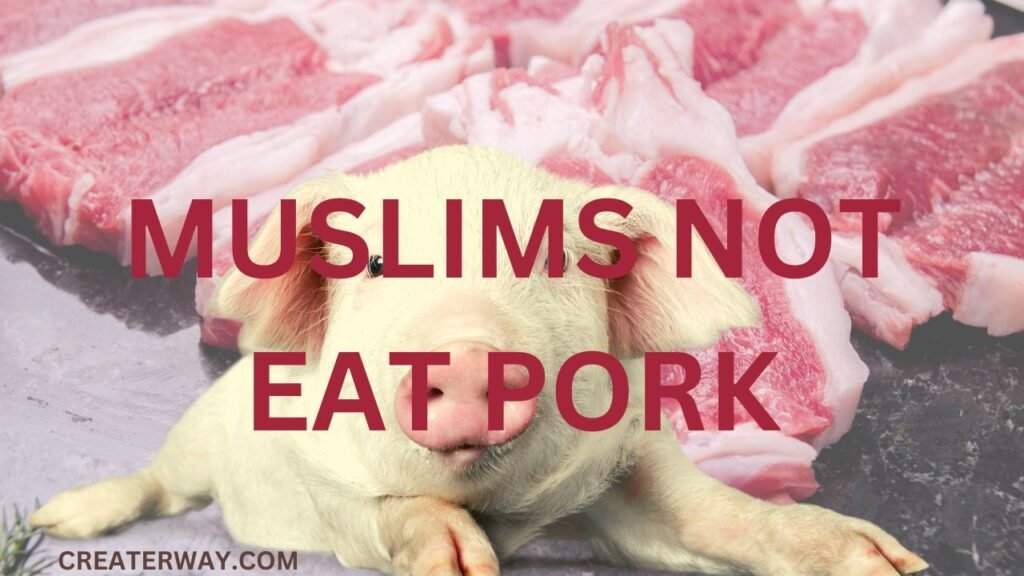GLOBAL NEWS
WHY DO MUSLIMS NOT EAT PORK?


WHY DO MUSLIMS NOT EAT PORK?
In Islam, the dietary laws hold great importance, guiding Muslims in their daily lives. One remarkable restriction is the prohibition of eating pork. This content explores the reasons behind this dietary reduction, exploring religious and practical aspects. Understanding the basis of this prohibition will enable readers to appreciate the importance of pork avoidance in the lives of Muslims.
Historical and Religious Background
The Quranic Teachings Respect for Divine disclosure:
Muslims trust that the Quran is the word-for-word of God, and they consider it a guide for all aspects of life, including alimental practices. The Quran emphasizes the importance of obedience to God’s commands.
The Prohibition in the Quran:
In several poetry, the Quran accurately forbids the use of pork. For example, Surah Al-Baqarah states, “He has only forbidden to you dead animals, blood, the tissue of swine…” This precise banning forms the foundation of Muslims’ avoidance of pork.
Prophetic Tradition (Hadith) The Example of Prophet Muhammad (peace be upon him): The Hadith, the recorded sayings and actions of Prophet Muhammad, provide further guidance for Muslims. The Prophet strictly stuck to the prohibition of pork and encouraged his followers to do the same. His exemplary lifestyle serves as a model for Muslims to follow.
Preservation of Health and Spiritual Purity:
The prohibition of pork is not merely a religious obligation but also encompasses practical intelligence. The Hadith highlights the harmful effects of consuming pork, such as the potential transmission of diseases. Furthermore, abstaining from pork is a means of maintaining spiritual purity and self-discipline.
Spiritual and Symbolic Significance
Divine Understanding and Submission Muslims trust that every behest from God is rooted in divine understanding, even if the reasoning may not be fully comprehensible to humans. Abstaining from pork consumption displays obedience and submission to God’s will, irrespective of personal desires or cultural influences.
Malignant Discipline and Self-Control Avoiding pork represent a form of self-discipline and self-control. This discipline expands beyond dietary habits and fills various aspects of their lives, fostering a sense of mindfulness and self-control. Muslims are encouraged to practice moderation and refrain from indulging in prohibited foods, including pork.
The symbolism of clarity Pigs is often associated with pollution in various cultures and religions. Islam promotes cleanliness and clarity in both physical and spiritual realms. Abstaining from pork use symbolizes chasing transparency and avoiding anything considered impure.
“Explore the cultural and religious reasons for the avoidance of pork in Muslim dietary practices. Respectful insights await.”
createrway.com

















